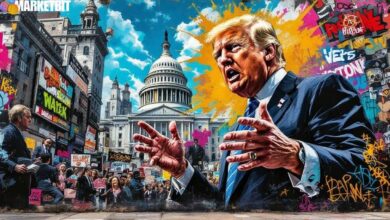Telegram Rebuffs French Censorship Request Over Moldovan Elections

- Telegram’s refusal to censor Moldovan election posts prompts international scrutiny.
- Censorship demand poses potential risks to democratic processes.
- Telegram’s stance reinforces its commitment to free speech.
French intelligence officials sought to censor Moldova election-related posts on Telegram, a demand rejected by founder Pavel Durov, highlighting concerns over political censorship and interference.
The refusal underscores Telegram’s commitment to free speech, raising questions about government influence on digital platforms and its potential impact on future international relations and election integrity.
French intelligence officials allegedly pressured Telegram to censor posts linked to Moldovan elections. Telegram’s founder, Pavel Durov, denied the request, labeling it as political censorship. The situation highlights ongoing tensions regarding free speech online.
“Shortly thereafter, the Telegram team received a second list of so-called ‘problematic’ Moldovan channels. Unlike the first, nearly all of these channels were legitimate and fully compliant with our rules. Their only commonality was that they voiced political positions disliked by the French and Moldovan governments. We refused to act on this request.” — Pavel Durov, Founder & CEO, Telegram
French Pressure on Telegram
Involved parties include Pavel Durov, founder of Telegram, and unnamed French and Moldovan officials. Durov accused the French of judicial interference, while Telegram maintains its policy against complying with politically-motivated censorship demands.
Impact on Elections
The pressure from French officials potentially endangers the integrity of Moldovan elections. Durov’s decision has attracted attention from industry figures like Elon Musk, who acknowledged the allegations with notable concern.
Financially, direct impacts on Telegram are unreported. The incident raises political concerns about the balance between national security interests and freedom of speech on public platforms.
A Pattern of Censorship Demands
Similar incidents occurred during Romanian elections, demonstrating a pattern in French intelligence’s demands on Telegram. This underscores the platform’s ongoing struggles to resist political censorship.
The episode may affect perceptions of Telegram in the crypto community, emphasizing its role in supporting uncensored communication channels. However, no specific crypto markets show immediate impact due to this controversy.




